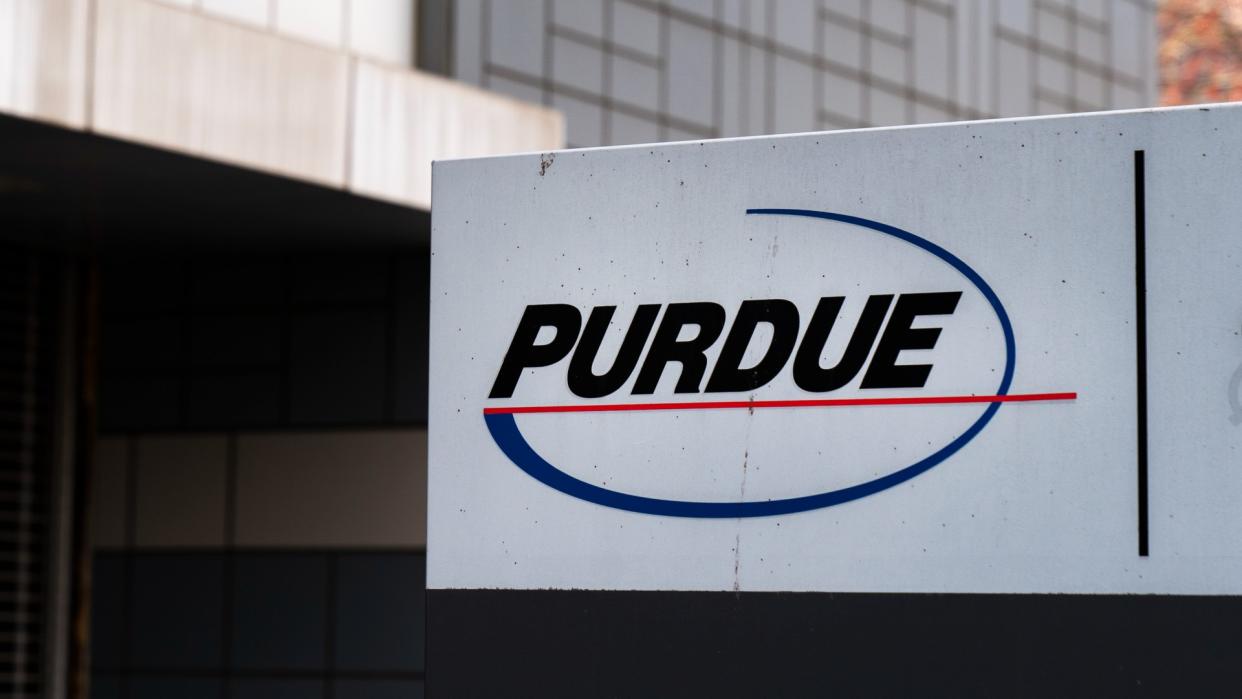The next Supreme Court case could spell the end of Purdue Pharma

The U.S. Supreme Court is hearing many important cases this term, but perhaps none are as consequential — or controversial — as one involving Purdue Pharma. The long-maligned pharmaceutical brand, often accused of singlehandedly turbocharging America's opioid crisis as the maker of OxyContin, is caught in the middle of a settlement that will see the high court weigh in.
The Supreme Court will hear oral arguments Monday in Harrington v. Purdue Pharma L.P. The case will scrutinize a previously agreed-to bankruptcy deal that would have Purdue's former owners, the Sackler family, pay victims of the opioid crisis $6 billion in compensation in exchange for the family's immunity from further civil lawsuits. Under the deal, Purdue Pharma would also cease to exist and be reorganized under a new company, Knoa Pharma, that would work to manufacture opioid addiction treatments.
The bankruptcy deal was initially approved but was blocked earlier this year by the Justice Department, which asked the Supreme Court to review the outcome. The case is one of "grave national importance," CNN reported. The court's ruling will not only decide Purdue's fate but also declare "whether a bankruptcy plan can be engineered to give legal immunity to a third party — in this case, members of the Sackler family," The New York Times reported.
A 'pivotal moment' in the crisis
Harrington v. Purdue Pharma L.P. marks a "pivotal moment in the crisis — and a coda for a company that for many became a symbol of the ravages prescription painkillers inflicted across the country," Adriel Bettelheim wrote for Axios. However, Purdue's complicity in the opioid crisis "makes a deal that allows the Sackler family to hold onto any of its billions particularly distasteful."
And while critics of the Sacklers may be angered by a deal that would provide them immunity, approval of the settlement could be the best option for victims, The Economist wrote. If the Supreme Court were to strike down the settlement and allow victims to sue the Sacklers, "in all likelihood they would end up with less," Baruch College law professor William Organek told The Economist. The Sacklers' extreme wealth would allow each member of the family to "mount his or her own defense. Lawsuits and collection of judgments would take years, if not decades."
But many families who have been victimized seem to be straddling the line on what to do. The case "has created a tough situation for families who are eager for the funds to be distributed for drug treatment and other services, but who also want the Sacklers to face justice for the company’s role peddling addictive prescriptions," Samantha Michaels wrote for Mother Jones.
Many have been struggling with the crux of the case for a long time. Even though it would shield the Sacklers, "the urgency of the opioid crisis is why I voted for the settlement," Cheryl Juaire, who lost two sons to opioids, opined for The Washington Post in January 2022. "Sparing other American families the grief I've known is my top priority."
'Hit the Sacklers where it hurts'
Even though the settlement would force the Sacklers to pay billions, some argue it's not enough. "The only way to get closure is to hit the Sacklers where it hurts," William Nelson, an Indiana judge whose son died from OxyContin, told The Wall Street Journal. Nelson "wants the Sackler family to spend years in court defending themselves from civil lawsuits."
Others seem to agree that the payout is not the primary goal. "This money is a pittance," Cynthia Munger, whose son became an addict, told the Journal. Munger added that if the Supreme Court "cannot address the civil injustice of this case, we would not have a remote chance of criminal justice for parties who are absolutely guilty."
"The Sacklers do not want to have to be in the bankruptcy fishbowl," Georgetown University law professor Adam Levitin told NPR. Levitin noted that the settlement would shield not only the Sacklers, but also their consultants. None of them would have to pay any of the victims, but "all of them would be released from liability in the deal," Nina Totenberg reported for NPR.
Bankruptcy "is supposed to provide relief for honest but unfortunate debtors," Levitin added. It allows people to "come clean about their assets and give up all of their assets to their creditors. The Sacklers are not doing either of those things."

